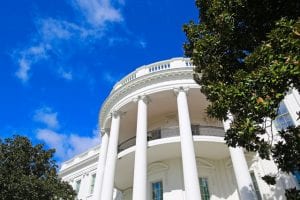Global Sustainable Equity: news and opportunities (January 2021)

Hamish Chamberlayne, Head of Global Sustainable Equities, reflects on the last quarter of 2020 and looks ahead to the opportunities in the world of sustainability.
Key takeaways:
- Positive news of a successful COVID-19 vaccine, a long-awaited Brexit deal and fresh start at the White House led markets to rise over the quarter.
- Newly elected US President Joe Biden has put sustainability at the forefront of his agenda, with plans to rejoin the Paris Climate Agreement and an ambitious US$2 trillion Green New Deal.
- We believe it is instructive to distinguish between the near term and long term when it comes to thinking about the outlook for markets and identifying investment opportunities
Despite spiking COVID-19 infection rates continuing to hamper economic activity in many countries, the news of successful vaccine trials was a major positive catalyst enabling investors to focus on the potential for a broader recovery. As a result, more economically sensitive sectors led the markets’ rise. This pro-cyclical dynamic was further reinforced by the US government agreeing a large fiscal stimulus package and the US Federal Reserve (Fed) reiterating its commitment to support higher growth and inflation. There was also a positive reaction to Joe Biden winning the US Presidential election, and after four long years, the UK and European Union (EU) finally managed to agree a Brexit deal.
If we had to choose one word to summarise everything, it would have to be ‘digitalisation’.
A renewed approach to sustainability in the US
From a sustainability perspective, the most significant event of the quarter and perhaps the whole year, was Joe Biden’s victory over Donald Trump. While Trump’s presidency has not done as much damage to the decarbonisation trend as initially feared, his hostility to climate change and his efforts to undo environmental regulations and undermine global political co-operation, have certainly not helped progress. Fortunately, innovation in clean technology and business investment has superseded his political destructiveness.
 Conversely, president‑elect Biden has put the climate agenda at the front and centre of his policy objectives. His climate plan is the boldest of any US presidential candidate in history. He has now signed an executive order to rejoin the 2015 Paris Climate Agreement and announced a massive green focused investment plan for a nationwide mobilisation to reduce emissions and build and retrofit infrastructure, creating new jobs and advancing social justice.
Conversely, president‑elect Biden has put the climate agenda at the front and centre of his policy objectives. His climate plan is the boldest of any US presidential candidate in history. He has now signed an executive order to rejoin the 2015 Paris Climate Agreement and announced a massive green focused investment plan for a nationwide mobilisation to reduce emissions and build and retrofit infrastructure, creating new jobs and advancing social justice.
His Green New Deal will involve US$2 trillion investment in clean energy over the next four years in the US, and he has called for 100 per cent clean electricity by 2035. It cannot come too soon — while 2020 witnessed the steepest decline in greenhouse gas emissions in history, it is also on track to be one of the hottest years.
It is astonishing to reflect that, against a backdrop of a global pandemic, which has caused (and is still causing) extreme social and economic disruption, many equity markets delivered double-digit gains last year with the MSCI World Index, the S&P 500 Index and some Chinese indices recording all-time highs. It is true however, that many businesses have successfully adapted and even thrived in this turbulent environment. The global pandemic has caused societal change at a pace that is hard to comprehend and there are many companies on the right side of these changes.
Digitalisation: an agent for positive change
If we had to choose one word to summarise everything, it would have to be ‘digitalisation’. Already a very well-established investment trend, it has only been accelerated by the events of the last year, and we believe that it is a powerful agent of positive change with regards to both societal and environmental sustainability goals.
Digitalisation is playing a positive role in economic development and social empowerment, and we also see a close alignment between digitalisation and decarbonisation. It is important to recognise that this trend is impacting all industries and blurring the lines between sector classifications. Many people call this the 4th Industrial Revolution.
 So what can we see as we look to the future? We believe it is instructive to distinguish between the near term and long term when it comes to thinking about the outlook for markets and identifying investment opportunities. In the near term, we are conscious that valuations are high in some parts of the market. With extremely accommodative monetary policy, and central banks committed to supporting higher growth, the conditions do exist for further equity market upside; however, we are becoming more sensitive to near-term valuations, and are therefore focused on maintaining discipline in our portfolio construction.
So what can we see as we look to the future? We believe it is instructive to distinguish between the near term and long term when it comes to thinking about the outlook for markets and identifying investment opportunities. In the near term, we are conscious that valuations are high in some parts of the market. With extremely accommodative monetary policy, and central banks committed to supporting higher growth, the conditions do exist for further equity market upside; however, we are becoming more sensitive to near-term valuations, and are therefore focused on maintaining discipline in our portfolio construction.
Seeking persistent and bankable trends
As we look to the next several years, we are optimistic. We see some very persistent, solid opportunity investment trends that are closely aligned with sustainability. With a pro-climate US President, the EU putting climate-related investment at the heart of its economic recovery plan, and China recently reaffirming its commitment to green investment and decarbonisation, the stars are aligning for a globally synchronised clean energy and technology investment boom. We do expect to see some normalisation and reversion to the mean as the vaccines are rolled out, but we believe this pandemic has accelerated and cemented some trends such that many of the societal and economic changes we have experienced will prove durable.
2020 has been a challenging year but we are optimistic that the global economy will emerge from this pandemic more resilient, and on a more sustainable trajectory, than before. Instead of undermining it, we believe this crisis will serve to underline the attractiveness of sustainable investing and how it leads to better outcomes, not only for investors but also for the environment and society.
Glossary
Monetary policy — The policies of a central bank, aimed at influencing the level of inflation and growth in an economy. It includes controlling interest rates and the supply of money.
This information is issued by Janus Henderson Investors (Australia) Institutional Funds Management Limited (AFSL 444266, ABN 16 165 119 531). The information herein shall not in any way constitute advice or an invitation to invest. It is solely for information purposes and subject to change without notice. This information does not purport to be a comprehensive statement or description of any markets or securities referred to within. Any references to individual securities do not constitute a securities recommendation. Past performance is not indicative of future performance. The value of an investment and the income from it can fall as well as rise and you may not get back the amount originally invested.
Whilst Janus Henderson Investors (Australia) Institutional Funds Management Limited believe that the information is correct at the date of this document, no warranty or representation is given to this effect and no responsibility can be accepted by Janus Henderson Investors (Australia) Institutional Funds Management Limited to any end users for any action taken on the basis of this information. All opinions and estimates in this information are subject to change without notice and are the views of the author at the time of publication. Janus Henderson Investors (Australia) Institutional Funds Management Limited is not under any obligation to update this information to the extent that it is or becomes out of date or incorrect.
